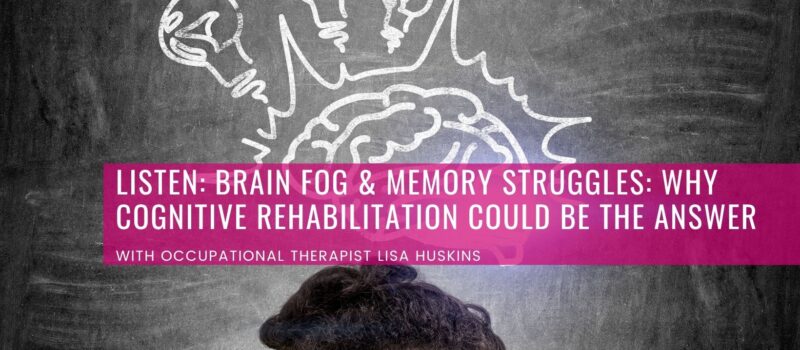
Brain Fog & Memory Struggles: Why Cognitive Rehabilitation Could Be the Answer
Brain Fog & Memory Struggles: Why Cognitive Rehabilitation Could Be the Answer
Are you dealing with memory lapses, trouble focusing, or that frustrating feeling of brain fog? If you’ve ever walked into a room only to forget why or struggled to recall conversations with loved ones, you’re not alone. These cognitive challenges can affect anyone—whether from aging, injury, illness, or even post-pregnancy hormonal changes.
But the good news? Cognitive rehabilitation offers powerful tools to strengthen brain function and improve everyday mental clarity.
Understanding Cognitive Rehabilitation
Expert Lisa Huskins, an occupational therapist from Leading Edge Physiotherapy, explains that cognitive rehab helps individuals overcome processing issues, memory difficulties, and focus-related struggles caused by:
- Traumatic brain injuries
- Concussions (often linked to sports injuries or accidents)
- Strokes and post-stroke cognitive impairments
- Chemotherapy-related brain fog (often called “chemo brain”)
- Post-menopausal cognitive changes
- Viral infections impacting brain function
What Cognitive Rehab Actually Does
Unlike traditional treatments that focus on structural brain damage, cognitive rehab works on brain processing—the “software” rather than the “hardware.”
Through targeted exercises and structured programs, cognitive rehab helps individuals:
- Improve memory recall
- Boost attention span
- Speed up processing time
- Strengthen problem-solving skills
And thanks to brain plasticity—your brain’s ability to rebuild and create new pathways—progress is possible at any age.
Why Movement Matters
One major takeaway from the episode? Physical activity is essential for brain health. Aerobic exercise increases oxygen flow to the brain, releases chemicals that aid learning and recovery, and significantly helps with emotional well-being, reducing symptoms of:
- Anxiety
- Depression
- Irritability
Whether it’s a daily walk or structured rehab exercises, movement plays a key role in cognitive recovery.
Practical Strategies for Improving Brain Function
Lisa shares simple yet effective ways to support cognitive health, including:
- Pacing yourself – Avoid mental exhaustion by building breaks into your day.
- Brain training exercises – Puzzles can help, but structured rehab programs are often more effective.
- Reducing distractions – Creating a focused environment helps improve concentration.
- Seeking professional help – Memory issues and cognitive concerns shouldn’t be dismissed—there are solutions.
Final Thoughts: Why You Should Pay Attention to Cognitive Health
Cognitive struggles, whether linked to aging, injury, or health conditions, often go underdiagnosed or ignored—but they shouldn’t. If you’re noticing changes in your memory or focus, it’s worth exploring how cognitive rehab can make a difference.
- Have you ever experienced brain fog or memory struggles? Share your thoughts in the comments!
- Like this post? Don’t forget to share it with someone who might benefit from learning about cognitive rehabilitation.
Find us on Spotify and Apple Podcast and please give us a follow and/or a like while you’re there.
In Health, Grant Fedoruk
This information is not meant to replace the advice or treatment of a qualified physician or physiotherapist. It is meant for information only. Please seek an assessment and discuss your treatment options with your caregiver prior to making a decision about your treatment path.
